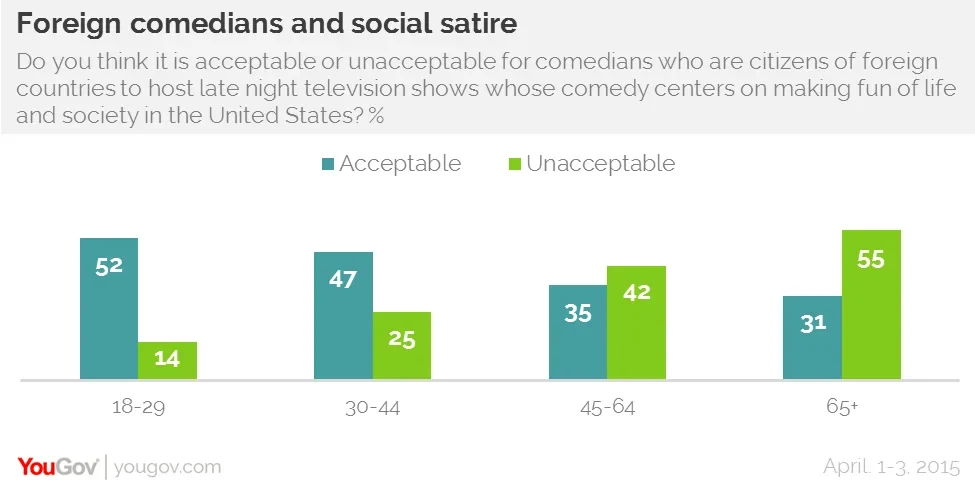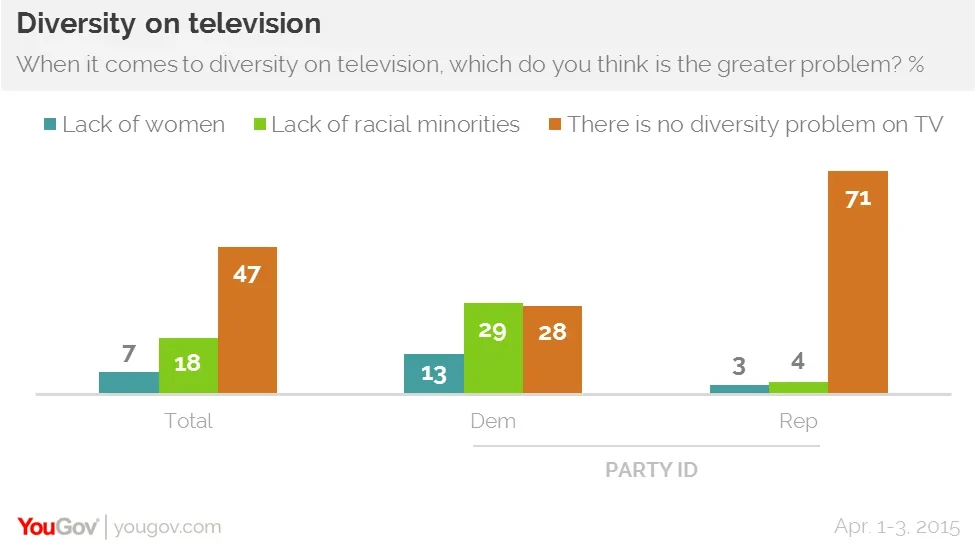There is a striking generational divide on whether or not it is acceptable for a foreign comedian to host a show like the Daily Show
Just over a week ago Comedy Central announced that South African comedian Trevor Noah will be replacing Jon Stewart as the host of the Daily Show. Noah, who is the product of a then-illegal union between a white man and black woman in Apartheid-era South Africa, will not be the only foreigner to cast a humorous eye at American society and politics. John Oliver, a British comedian who also got his start on the Daily Show, currently hosts a cutting and politicized weekly show on HBO which has seen him draw attention to erstwhile dry topics such as internet regulation.
YouGov's latest research shows that Americans are split over whether or not it is acceptable for a foreign citizen to host a show such as the Daily Show, a show where the comedy focuses on making fun of the quirks and American society and life. Americans do narrowly tend to say that it is acceptable (41%) rather than unacceptable (34%) for a foreigner to host such a late night show. There is a major age split on the issue, however. Under-45s say that it's acceptable for a foreigner to host such a show, but people aged 45 and over tend to say that it is unacceptable.

Under-30s (52%) and people whose household income exceeds $80,000 a year (51%) are the most likely to say it is acceptable while over-65s (55%) and Republicans (47%) are the most likely to say it is unacceptable.
The decision to have Trevor Noah host the Daily Show means that racial minorities are better represented in the ranks of late night hosts, but since the demise of Chelsea Handler's show on E! there are no female hosts on late night. 54% of Americans say that the lack of a female host is 'not at all' serious, while only 8% say that it is 'very' serious' and 21% think it is 'somewhat serious'.
Asked more broadly, Americans tend to believe that there is not actually a diversity problem on television. 47% say that there is no diversity problem on TV, while 18% say that the lack of racial minorities is the greatest problem when it comes to diversity on television. Only 7% say that the lack of women is the bigger issue. There is a significant political divide on this, however, as Republicans (71%) are significantly more likely then either independents (49%) or Democrats (28%) to say that there is no TV diversity problem.













